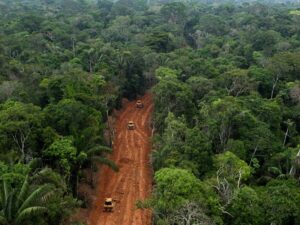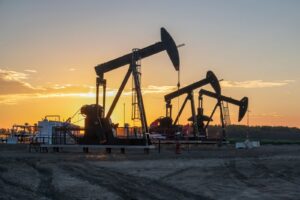
Every time you start a petrol-powered car, order a huge grilled steak at a restaurant, or turn on every electrical appliance in the house, think about the fact that there are too many actions in the world that leave a carbon footprint. A way too many. We can see climate change provoking dramatic consequences. The latest example is the terrible flood in Pakistan. I decided to look into how the suffering of millions of people is related to our exorbitant consumption, which is killing the planet very quickly.
Angelina Jolie, the famous American actress and Goodwill Ambassador of the Office of the United Nations High Commissioner for Refugees, recently visited Pakistan. She witnessed the terrible aftermath of the flood that covered a third of the country. Thirty-three million people became its victims, and six million need urgent help.
More than 1,100 people died and 1,600 were injured. Buildings, bridges and roads were destroyed. The disaster damaged 4 million hectares of farmland and killed almost 800,000 livestock. As a result, a large-scale humanitarian catastrophe began in the country.
Meanwhile, Pakistan is currently hosting more than a million Afghan refugees who refused to live under Taliban medieval rule in their own country. And now in their new homeland they are facing no lesser ordeal.
Everyone will suffer
Angelina Jolie urges us to remember the climate catastrophe that people have created for themselves on Earth. “Governments need to be pushed to understand that the lack of fair trade, rising emissions and the failure to resolve conflicts are causing more deaths and suffering for millions of families around the world,” said the actress.
There have been several terrible natural disasters this year. Rivers in Europe and China were drying up. The abnormal summer heat destroyed crops in Pakistan and India. In August, heavy rains caused flooding in several regions of Germany and Austria. Because of the weather, a state of emergency was declared in the United States.
According to UN Secretary-General António Guterres, Pakistan is one of the ten countries most affected by climate change in the world. Although the state accounts for only 1% of global carbon dioxide emissions.
“Pakistan and other developing countries are paying a terrible price for the relentlessness of countries that continue to rely on fossil fuels. I am sending a global message from Islamabad: stop the madness. Invest in renewable energy immediately. Stop the war with nature,” emphasized Guterres.
It is clear that natural disasters have occurred throughout human history. But it is the man-made climate change that affects their frequency and intensity. German scientists have found that the probability of major flooding in different regions of the planet has now increased by a factor of 1.2 to 9. They are likely to be 3–19% stronger than they used to be 120 years ago. For example, the rainfall that led to the flooding in Pakistan was almost three times the average of the past 30 years.
Claire Nullis, representative of the World Meteorological Organization officially confirmed: “The terrible flooding in Pakistan is a consequence of climate change, which is becoming increasingly extreme.”
The planet can be saved
Today 90% of global natural disasters are weather and climate related. Disasters cause the world economy to lose an average of $520 billion a year. As a result, 26 million people are in severe poverty worldwide.
Why should a huge number of people, comparable in population to an average European country, have to endure inhuman suffering? For the sake of the super profits of fuel corporations. Because the extraction of oil, gas and coal releases billions of tons of carbon dioxide into the atmosphere of the planet.
According to the World Meteorological Organization, if humankind does not come to senses and slow down the rate of emissions, by 2100 the average temperature will rise 3 degrees Celsius above pre-industrial levels. Now it is only 1 degree warmer, and we can see what sad consequences this has caused.
At the same time, modern efficient technology can already reduce air emissions by more than 70%. But that is not even the problem. All of us can counteract the global environmental catastrophe. Thus, experts of the UN Environment Program assure that if 1 billion people take practical environmental steps, up to 20% of global carbon emissions will simply disappear.
All you have to do is walk, ride a bicycle, or at least use electrical vehicles. You should also go by air not so often. Reduce waste as much as possible. Eat more plant foods and choose seasonal and local produce. Switch to renewable energy sources. The sun and the wind are our best friends. Make your housing warmer. Exclude the stand-by mode for electrical appliances. Don’t buy too many things — wear the same clothes for several years. Try to reuse things. Before you throw anything away, think about whether it can still be repaired.
Follow these simple rules of life, and you will not have to suffer in the future. After all, all these voluntary restrictions are not a high price to pay for the future of our planet.





